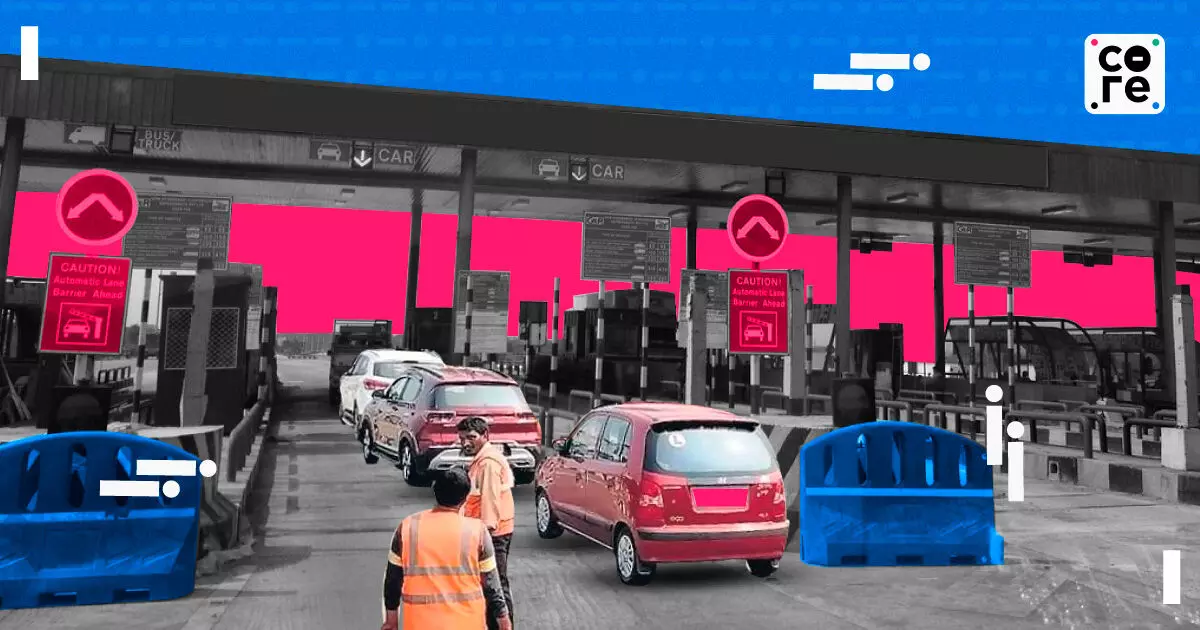
Beyond Mumbai Tolls: Rethinking How India Pays For Its Roads
In a pre-election move, the government scrapped tolls for light vehicles at Mumbai entry points.

Mumbaikars have reason to rejoice. The government has, in an apparent pre-election move, scrapped the toll for light motor vehicles at five entry points to Mumbai, effective Tuesday night.
The current toll is Rs 45 and has been rising steadily over the years. The clamour for removing this toll is not new and has been around for a few years. The toll is collected by MEP Infrastructure, a private company, to maintain 27 flyovers in the city of Mumbai and associated infrastructure.
The deal, awarded by the Maharashtra State Road Development Corporation (MSRDC), was set to expire in two years. The government's decision to scrap the toll raises questions about potential contractual breaches and compensation.
The larger issue is whether it was the toll itself or the hassle surrounding it that people had problems with.
People likely hated the tolls more because of the inconvenience caused — the backed-up traffic jams and time lost — rather than the Rs 45 toll fee itself. One might rightly wonder why Mumbai’s roads are in such poor shape despite these tolls and other taxes. This particular toll in question was not for the whole city, just the flyovers.
Tolls in India are a bane, primarily due to the time lost idling, which translates to fuel burned and wasted by millions of motorists. Studies on this specific issue are limited, but it's estimated that tens of thousands of crores of rupees were once lost annually due to idling at toll plazas and traffic backups. This figure has likely decreased proportionally with the introduction of the radio frequency tag system, FASTag, though the extent of the reduction remains unclear.
In my experience, backups at toll plazas frequently occur because people without a FASTag enter the designated FASTag lane or a driver's account balance is insufficient, preventing the gate from rising. While there may be various reasons for these issues, the resulting delays are common.
Arguably, RFID-based systems like E-ZPass in the US operate more seamlessly, allowing vehicles to pass through tolls at speed. This system also appears to have some "leakage" built in. In the E-ZPass system, if your account is not topped up, you will get charged later whenever you do unlike in India where you will be stopped and forced to pay cash.
Hence, in India, eliminating the toll altogether might be a more effective solution than maintaining it. While FASTag addressed revenue leakage, it only marginally improved the ease of passage for motorists.
India's road transport minister, Nitin Gadkari, has announced and piloted a new system called the Global Navigation Satellite System (GNSS). This satellite-based road toll collection system allows for free travel of up to 20 km daily in each direction on national highways and expressways. Drivers will pay only for the distance travelled, rather than the distance between two toll points.
The GNSS-based system, which eliminates stopping at toll booths, is expected to launch in April next year and could eventually replace the FASTag system. If most vehicles utilise GNSS systems, toll plazas will likely become obsolete, at least in their current form. This transition offers numerous other potential cost savings as well.
The time value of delays incurred on Indian roads has rarely been recognised, as road management has historically been in private hands, whether individual or business. While the elimination of entry tolls into Mumbai city at various points is a welcome move, there should be an accompanying recognition of the cost of bad and poor roads on people’s time, business and lives.
In a pre-election move, the government scrapped tolls for light vehicles at Mumbai entry points.
Zinal Dedhia is a special correspondent covering India’s aviation, logistics, shipping, and e-commerce sectors. She holds a master’s degree from Nottingham Trent University, UK. Outside the newsroom, she loves exploring new places and experimenting in the kitchen.

